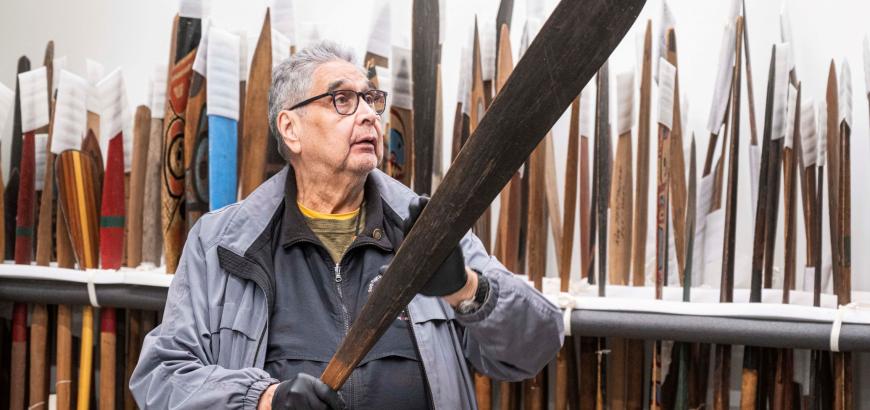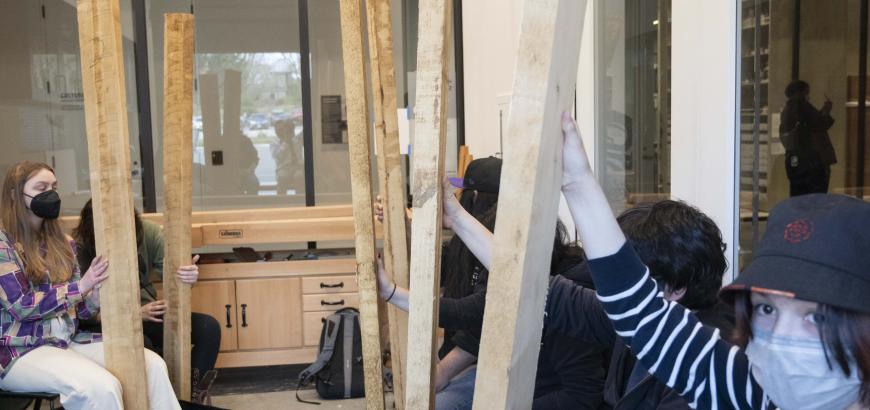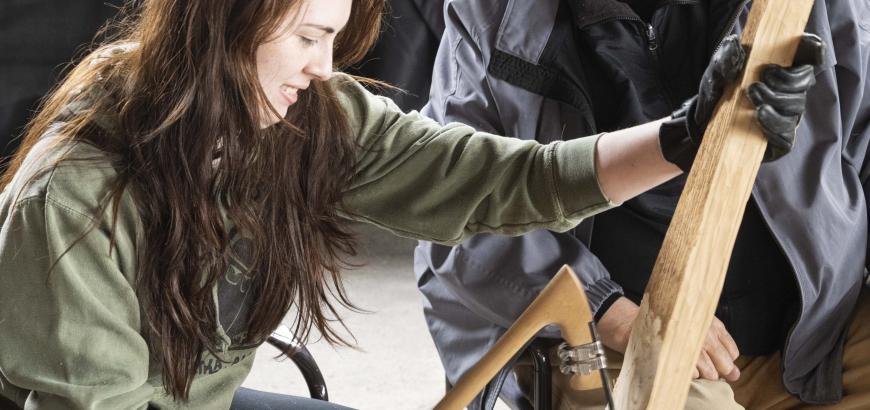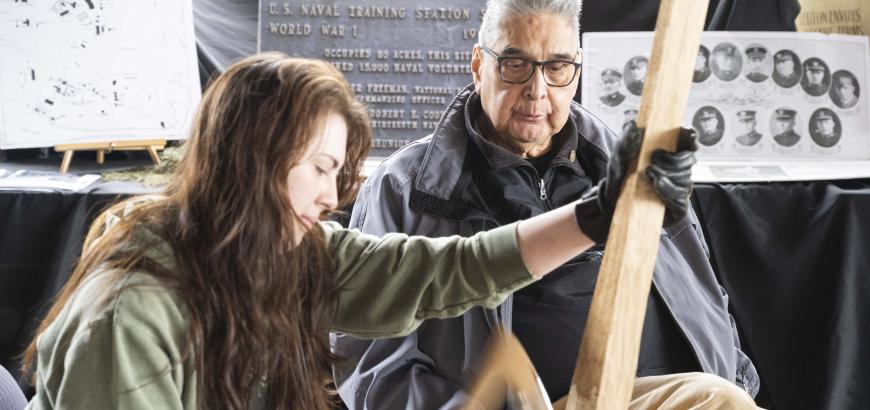The 2021-2022 School year got off to a rocky start, but the Center for American Indian and Indigenous Studies Native Knowledge-in Residence Coordinator Philip H. Red Eagle (Steilacoom/Dakota) were not deterred, and neither were the students.
They were going to create a UW Canoe Family.
Bi-weekly meetings began on Zoom in the fall, finally moving to in-person meetings over winter quarter and have now transitioned into weekly paddle carving workshops at the Burke!
Groups of students, staff and faculty have been meeting every week to study and carve traditional Coast Salish style canoe paddles under the watchful eye of their mentor and teacher Philip H. Red Eagle. Phil’s meticulously compiled carving kits for the Canoe Family members contain every tool necessary to design and carve a paddle from scratch. He also created the paddle design and structures the classes so that while working in pairs, each of his students carve identical paddles within a 1/16” of his specifications.
Phil’s style of instruction calls for great patience and dedication, which has been warmly embraced by all of the students. The paddle carving classes will continue throughout the month of May after which the paddles will be finished and, according to proper protocol, gifted to the UW Canoe Family Canoe, currently the former Oliver Family canoe, the Willapa Spirit.
The Native-Knowledge-in Residence program is made possible through the generous support of the Mellon Foundation. Tools and supplies were purchased in part with additional support from the Potlatch Foundation.



